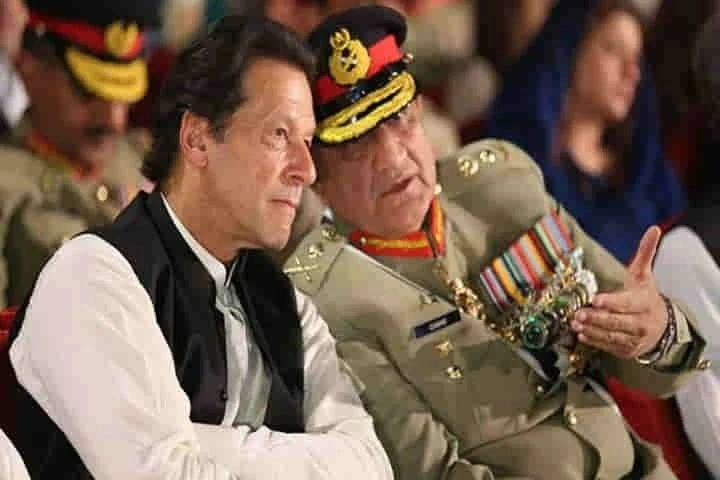Speculation is running rife that Pakistan could once again be approaching an inflection point. In media circles there is an air of anticipation that during what could be a historic rally at the D-Chowk in Islamabad today, Prime Minister Imran Khan could do the astonishing—announce the resignation of his government.
There is context to the “informed” rumours. The mercurial Imran Khan, faced with the inevitability of the passage of a no-confidence in Parliament, rather than meekly surrendering, would like to begin his second innings with a frenzied flourish. Ballistic with his words against the Pakistani system, with the military and the corrupt politicians together in the firing line, Khan could well dream of becoming a “Ghazi”—a fearless religious warrior who has the guts and spirit to stand up for Pakistan.
Unfortunately for Khan, the much-anticipated brick and brimstone performance is not going to work. There are plenty of reasons which blare that his days as Prime Minister are virtually over. The endgame is unfolding at the speed of knots.
First, Khan has lost institutional support in the system. The military, the most powerful king-maker in Pakistan, which had been the architect of his hybrid-government, has pulled the rug under the Prime Minister’s feet. The breach between the two is now unbridgeable. During one of his inflammatory speeches the Prime Minister bowled the ultimate beamer. In a statement which is likely to invoke the wrath of the generals, he praised the Indian army as being a non-corrupt force. As far as the Pakistani military goes, the epitaph on the gravestone is already written and Khan’s political “ janaza” is inevitably marking time. When an attempt to nuke the military as an institution is made, as was done by Khan, serious fault lines within the group of ruling corps commanders, real or fictitious, are bound to disappear.
Second, the economic hardships are hurting the ordinary people of Pakistan. The slogan of a “Naya Pakistan” bugled by Khan turned out to be hot air. In turn the Prime credibility of the Prime Minister’s utterances has taken a big hit. No amount of Islamized rhetoric, and the mainstreaming of emotive radicalism is likely to distract people from the basic bread and butter issues.
Third, Khan has alienated the West, which still has the capacity to tug at influential players in the Pakistani establishment. In one of his speeches Khan roared that Pakistan was not a “slave” of the West, when he announced that Islamabad will not back the US-led crusade against Russia in the context of Ukraine.
The Chinese, who have been consummately wooed by Khan are also unlikely to part with the Khan’s company, once his downfall is cast in stone. Fixated on safeguarding their troubled China Pakistan Economic Corridor (CPEC), which passes through an insurgency hit Balochistan and a restive Pakistan Occupied Kashmir, the mandarins in Beijing would rather rely on the military, Khan’s arch-foe, to pull out their chestnuts from fires that are now raging north of Gwadar, rather than depend on him.
Finally, and perhaps most importantly, the military appears to be working with a gentleman called Nawaz Sharif. Incarcerated for years, first by former dictator Pervez Musharraf—a move that forced the former Prime Minister to seek exile in Jeddah, Sharif is currently in de facto exile in London. On account of his years of suffering and steadfastness, Sharif has acquired a moral halo that completely outguns Khan’s blow-hot-blow cold personality.
Unsurprisingly, the PML-N, Sharif’s party is currently leading a Long March against “Mehangai” (inflation). This a massive demonstration of massive street power timed with the likely adoption of a non-confidence vote against the Prime Minister in Islamabad.
Led by Hamza Shehbaz and Maryam Nawaz, Sharif’s daughter and gen-next rising star on the Pakistan political horizon, the protesters have already reached Gujranwala. The group as it launches the second leg of the march will be joined by another heavyweight, Fazlur Rehman, who was on Saturday, slated to enter Islamabad via Hakla, adding substantial weight to the Long March.

